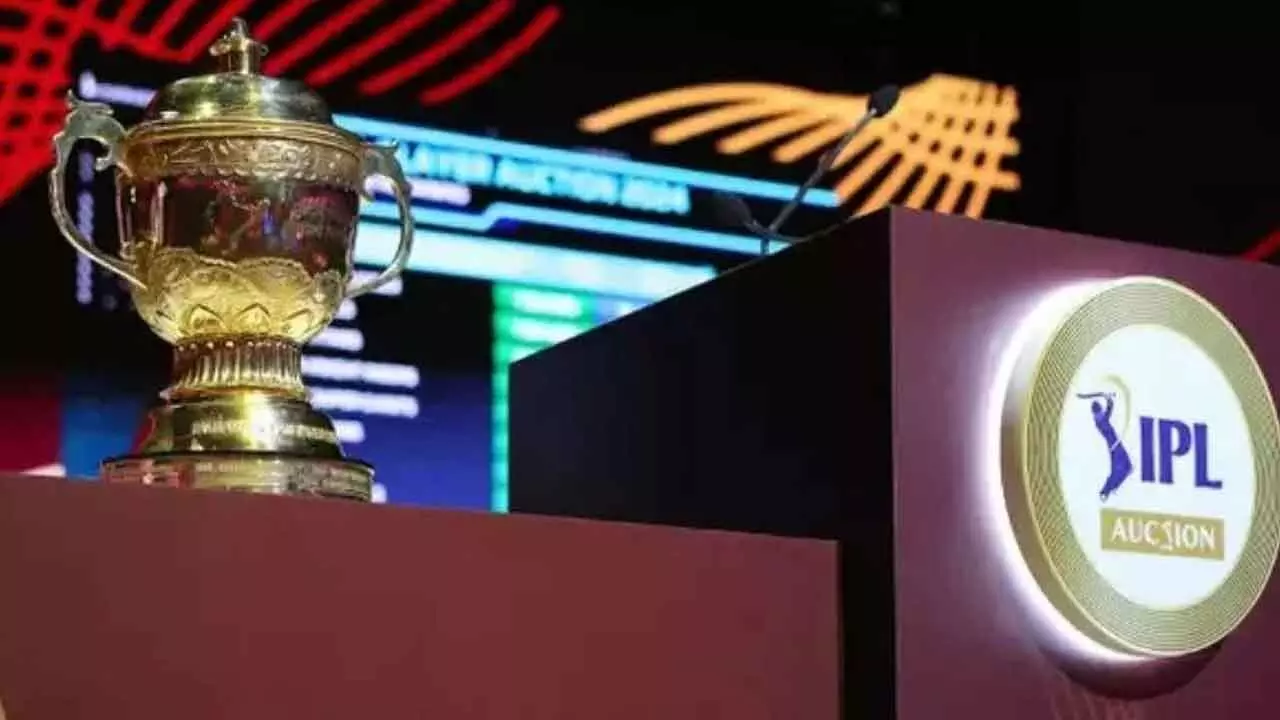IPL Governing Council Accedes To Franchises Demand Seeking Higher Retentions But Puts A Cap
New rules position CSK favourably as they can retain Dhoni in the uncapped category
IPL Governing Council Accedes To Franchises Demand Seeking Higher Retentions But Puts A Cap

Each franchise will have an auction purse of Rs 120 crore. The BCCI has directed franchises that they will have to allocate Rs. 12.6 crore each as match fees to the players for the season
The IPL retention rules, despite the myriad challenges that they bring along, have positioned Chennai Super Kings (CSK) favourably as they can retain MS Dhoni.
The IPL Governing Council, which met in Bangalore over the weekend, has given the nod to each franchise to retain up to six players, including Right-to-Match (RTM) options, ahead of the 2025 mega auction.
Talking to Bizz Buzz, Chandramouli Nilakantan, CEO of TRA Research, says, “The retention rules imply that CSK can retain Dhoni, mainly due to his iconic status and the team’s existing core structure. The team can also retain their senior players while managing the retention cap under the new guidelines.”
However, the new rules present a challenge for teams as they need to balance between keeping top-tier players while simultaneously adhering to the salary cap and player retention limits. This will compel them to take some tough decisions, especially when it comes to retaining expensive or aging stars, potentially causing a reshuffle in their squad strategies, he said.
As per the new rule, one of the retained players has to be an uncapped Indian, via the direct retention or the RTM option. The remaining five can be all Indians or overseas. A maximum of two uncapped players can be retained.
The auction purse is bigger this time by Rs. 20 crore at Rs. 120 crore each. The IPL has also decided to retain the Impact Player rule.
Each franchise will have an auction purse of Rs 120 crore. The BCCI has directed franchises that they will have to allocate Rs. 12.6 crore each as match fees to the players for the season.
A bigger auction purse will give the franchises more financial room at the auction. But there's a catch.
A franchise can retain up to six players, including the RTM options. Franchises were allowed to retain up to four players each ahead of the 2022 mega auction.
There's no cap. The six players a franchise is allowed to retain can be through direct retention, a combination of direct retention and RTMs or just RTMs. The 2022 IPL mega auction didn't allow the use of RTM cards, as the BCCI wanted to give the two new franchises, Lucknow Super Giants and Gujarat Titans, a bigger pool of players to choose from.
The RTM allows a franchise to buy a released player at the auction by matching the highest bid for the player from another franchise. For example, if Hardik Pandya is released by Mumbai Indians (MI) and the all-rounder fetches a maximum bid of Rs. 10 crore by another franchise, MI can buy him back by matching that bid.
The retention cap for uncapped players, however, is different. In this case, the IPL has stuck with Rs. four crore. It has also brought back the uncapped player rule, which will allow Indian players, who have retired from international cricket at least five years earlier, to go into the auction as an uncapped player, which implies that CSK can retain Dhoni, who retired in 2019, for Rs. four crore.
The Governing Council has decided that the first three retentions will be for Rs. 18 crore, Rs. 14 crore and Rs. 11 crore, respectively. For retentions No. 4 and 5, the cap will be Rs. 18 crore and Rs. 14 crore, respectively.
So, if a franchise opts for five retentions, Rs. 75 crore will be deducted from its auction purse. In a squad of 20 for example, the other players will have to be bought in the remaining Rs. 45 crore. The IPL has acceded to the franchises’ demand of higher retentions, but it has put them in a tricky position with the retention cap.
Last year's auction was held in Dubai. It is learnt that for the 2025 mega auction, the BCCI has offered the franchises two windows to choose from - second week of November or the third week of December. As regards the venue, Abu Dhabi is considered to be the frontrunner, while Doha and Muscat are the back-up options.

